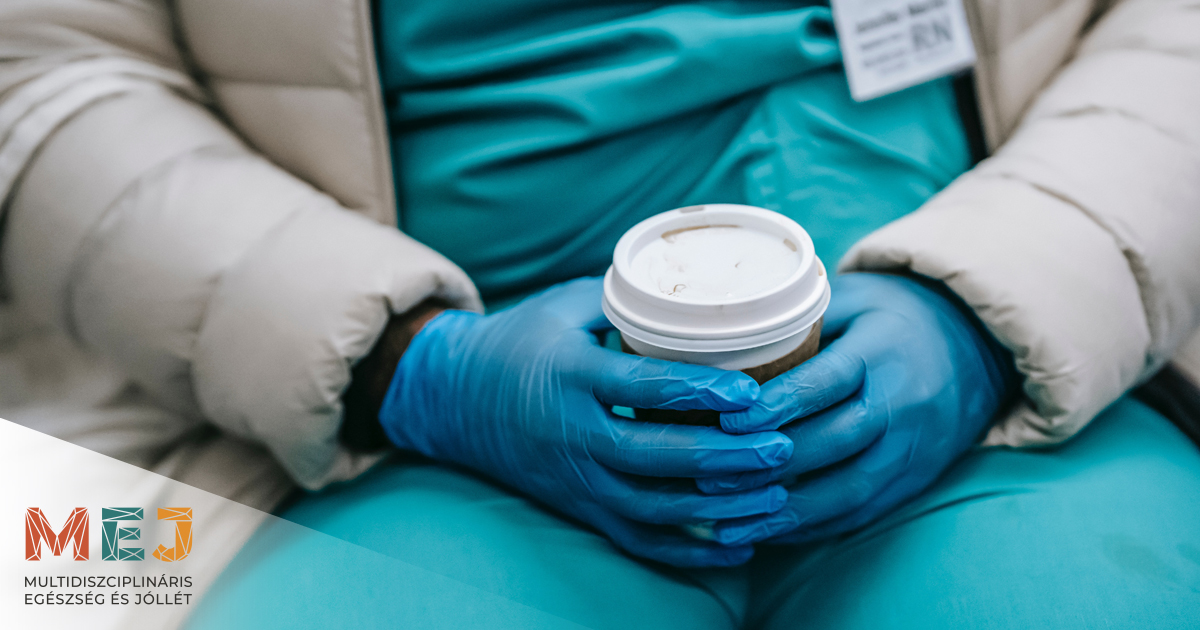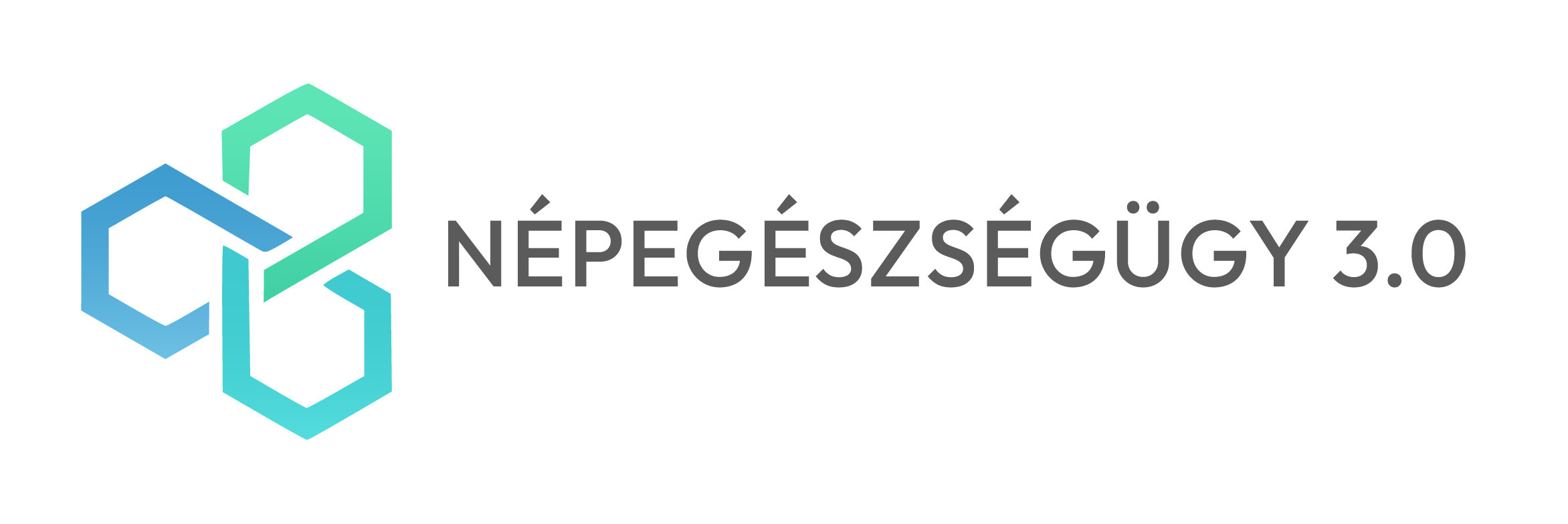Nurses' stress levels and sleep quality during the COVID-19 pandemic: A cross-sectional study
Abstract
INTRODUCTION: Nursing is one of the most stressful occupations in the healthcare sector. In Hungary, the emergence of Covid-19 has further increased the burden on healthcare and, in turn, has aggravated the situation of nurses, placing them under greater strain, both psychologically and physically.
METHODS: Our cross-sectional, quantitative, descriptive research was conducted between December 2020 and February 2021. A total of 199 participants were included in the study. The data was collected online. Our questionnaire included sociodemographic, work-related questions and items from standardised questionnaires [PSS (Perceived Stress Questionnaire), (Groningen Sleep Quality Scale)]. Data were processed using SPSS 25.0 statistical software. Descriptive statistics, correlation, one-way analysis of variance (ANOVA) and independent samples t-test were used for data analysis. Results were considered significant at p < 0.05 with a 95% confidence interval.
RESULTS: The nurses surveyed had moderately high stress scores in the study. Our results indicate that nurses who worked more night shifts (F = 3.455, p = 0.034) and more overtime in a month (F = 7.077, p = 0.001) had significantly higher perceived stress levels. There were also significant differences in perceived stress levels and the nurses' work category of patients they cared for (F = 2.935, p = 0.035). Regarding overtime, nurses who worked more overtime in a month had significantly higher sleep quality scores, i.e. lower sleep quality (F = 6.369, p = 0.002).
CONCLUSIONS: The burden on healthcare caused by the Covid-19 pandemic has added to already high levels of workplace stress, which has a significant impact on sleep quality. Considering all this, preventing burnout and reducing stress at work would be even more critical in the current situation. The widespread use of measures to prevent work-related stress and reduce workload would be necessary at both organisational and individual levels.
References
Ács, P., & Raposa, B. (2014). Descriptive statistics, tables and graphs. In Data Analysis in practice (pp. 162–202). University of Pécs, Faculty of Health Sciences.
Baik, S. H., Fox, R. S., Mills, S., Roesch, S. C., Sadler, G. R., Klonoff, E. A., & Malcarne, V. L. (2019). Reliability and validity of the Perceived Stress Scale-10 in Hispanic Americans with English or Spanish language preference. Journal of Health Psychology, 24(5), 628–639. https://doi.org/10.1177/1359105316684938
Banda, Z., Simbota, M., & Mula, C. (2022). Nurses’ perceptions on the effects of high nursing workload on patient care in an intensive care unit of a referral hospital in Malawi: a qualitative study. BMC Nursing, 21(1). https://doi.org/10.1186/s12912-022-00918-x
Barello, S., Palamenghi, L., & Graffigna, G. (2020). Burnout and somatic symptoms among frontline healthcare professionals at the peak of the Italian COVID-19 pandemic. Psychiatry Research-Neuroimaging, 290, 113129. https://doi.org/10.1016/j.psychres.2020.113129
Boran, A. M., Shawaheen, M. S., Khader, Y., Amarin, Z., & Rice, V. H. (2012). Work-related stress among health professionals in northern Jordan. Occupational Medicine, 62(2), 145–147. https://doi.org/10.1093/occmed/kqr180
Cheung, T., & Yip, P. S. F. (2015). Depression, Anxiety and Symptoms of Stress among Hong Kong Nurses: A Cross-sectional Study. International Journal of Environmental Research and Public Health, 12(9), 11072–11100. https://doi.org/10.3390/ijerph120911072
Cohen, S., Kamarck, T. W., & Mermelstein, R. J. (1983). A Global Measure of Perceived Stress. Journal of Health and Social Behavior, 24(4), 385. https://doi.org/10.2307/2136404
De Souza, J. S., Júnior, J. M. P., & De Miranda, F. a. N. (2017). Stress in an emergency room and the challenges for Brazilian and Portuguese nurses. Revista De Enfermagem Referência. IV Série(12), 107–116. https://doi.org/10.12707/riv16064
Di Tella, M., Romeo, A., Benfante, A., & Castelli, L. (2020). Mental health of healthcare workers during the COVID ‐19 pandemic in Italy. Journal of Evaluation in Clinical Practice, 26(6), 1583–1587. https://doi.org/10.1111/jep.13444
Gómez-Salgado, J., Domínguez-Salas, S., Romero-Martín, M., Ortega-Moreno, M., García-Iglesias, J. J., & Ruiz-Frutos, C. (2020). Sense of Coherence and Psychological Distress Among Healthcare Workers During the COVID-19 Pandemic in Spain. Sustainability, 12(17), 6855. https://doi.org/10.3390/su12176855
Greenberg, N., Docherty, M., Gnanapragasam, S., & Wessely, S. (2020). Managing mental health challenges faced by healthcare workers during covid-19 pandemic. BMJ, m1211. https://doi.org/10.1136/bmj.m1211
Halcomb, E. J., McInnes, S., Williams, A., Ashley, C., James, S. L., Fernandez, R., Stephen, C., & Calma, K. R. B. (2020). The Experiences of Primary Healthcare Nurses During the COVID‐19 Pandemic in Australia. Journal of Nursing Scholarship, 52(5), 553–563. https://doi.org/10.1111/jnu.12589
Hu, D., Kong, Y., Li, W., Han, Q., Zhang, X., Zhu, L., Wan, S. W., Liu, Z., Shen, Q., Yang, J., He, H., & Zhu, J. (2020). Frontline nurses’ burnout, anxiety, depression, and fear statuses and their associated factors during the COVID-19 outbreak in Wuhan, China: A large-scale cross-sectional study. EClinicalMedicine, 24, 100424. https://doi.org/10.1016/j.eclinm.2020.100424
Huang, C., Wang, Y., Li, X., Ren, L., Zhao, J., Hu, Y., Zhang, L., Fan, G., Xu, J., Gu, X., Cheng, Z., Yu, T., Xia, J., Wei, Y., Wu, W., Xie, X., Yin, W., Li, H., Liu, M., . . . Cao, B. (2020). Clinical features of patients infected with 2019 novel coronavirus in Wuhan, China. The Lancet, 395(10223), 497–506. https://doi.org/10.1016/s0140-6736(20)30183-5
Jahrami, H., BaHammam, A. S., Algahtani, H., Ebrahim, A. F., Faris, M. a. E., AlEid, K., Saif, Z., Haji, E. A., Dhahi, A., Marzooq, H., Hubail, S., & Hasan, Z. (2021). The examination of sleep quality for frontline healthcare workers during the outbreak of COVID-19. Sleep and Breathing, 25(1), 503–511. https://doi.org/10.1007/s11325-020-02135-9
Karamánné Pakai, A, Oláh, A. (2014). A theoretical overview of scientific research. In Data Analysis in practice (pp. 9-32). University of Pécs, Faculty of Health Sciences.
Magyar Közlöny 528/2020. (XI. 28.) Korm. rendelet az egészségügyi szolgálati jogviszonyról szóló 2020. évi C. törvény végrehajtásáról - Hatályos Jogszabályok Gyűjteménye. https://net.jogtar.hu/jogszabaly?docid=A2000528.KOR&dbnum=1
Kisa, S. (2020). Burnout among Physicians and Nurses during COVID-19 Pandemic. European Journal of Environment and Public Health, 4(2), em0055. https://doi.org/10.29333/ejeph/8447
Nagy, I. (2015). A burnout szindróma vizsgálata a nyíregyházi ápolók körében. Acta Medicinae Et Sociologica /, 6(16), 39–58. https://doi.org/10.19055/ams.2015.6/16/3
Németh, A., Irinyi, T. (2021). Egészségügyi dolgozók kiégettségének összefüggése a COVID-19 pandémia alatt észlelt stresszfaktorokkal. Nővér, 34(2), 1–44.
Németh, T. Az ápolók pszichés terhelése, a stressz hatása a mindennapi feladatokra. Nővér, 2008; 21(1), 26-33.
Puto, G., Jurzec, M., Leja-Szpak, A., Bonior, J., Muszalik, M., & Gniadek, A. (2021). Stress and Coping Strategies of Nurses Working with Patients Infected with and Not Infected with SARS-CoV-2 Virus. International Journal of Environmental Research and Public Health, 19(1), 195. https://doi.org/10.3390/ijerph19010195
Sagherian, K., Steege, L. M., Cobb, S. J., & Cho, H. A. (2020). Insomnia, fatigue and psychosocial well‐being during COVID‐19 pandemic: A cross‐sectional survey of hospital nursing staff in the United States. Journal of Clinical Nursing. https://doi.org/10.1111/jocn.15566
Sampaio, F. J., Sequeira, C., & Teixeira, L. (2020). Nurses’ Mental Health During the Covid-19 Outbreak. Journal of Occupational and Environmental Medicine, 62(10), 783–787. https://doi.org/10.1097/jom.0000000000001987
Serrano-Fernández, M., Boada-Grau, J., Robert-Sentís, L., Boada-Cuerva, M., Vigil-Colet, A., & Assens-Serra, J. (2021). Spanish Adaptation of the Groningen Sleep Quality Scale (GSQS-8). Universitas Psychologica, 19, 1–11. https://doi.org/10.11144/javeriana.upsy19.sags
Shilpi B., Pallavi R. (2020). Measuring the Work Stress Level Among Nurses During Second Wave of Covid-19 in India, Ergonomics for Design and Innovation, 2022 June. https://doi.org/10.1007/978-3-030-94277-9_153
Sim, M. R. (2020). The COVID-19 pandemic: major risks to healthcare and other workers on the front line. Occupational and Environmental Medicine, 77(5), 281–282. https://doi.org/10.1136/oemed-2020-106567
Simor, P., Köteles, F., Bódizs, R., & Bárdos, G. (2009). A questionnaire based study of subjective sleep quality: The psychometric evaluation of the Hungarian version of the Groningen Sleep Quality Scale. Mentálhigiéné És Pszichoszomatika, 10(3), 249–261. https://doi.org/10.1556/mental.10.2009.3.5
Spányik, A., Simon, D., Rigó, A., Demetrovics, Zs. (2021) A COVID–19-járvány mentális hatásai az egészségügyben. Orvosok lapja, 2021
Stauder, A., & Thege, B. K. (2006). Az észlelt stressz kérdőív (PSS)magyar verziójának jellemzői. Mentálhigiéné És Pszichoszomatika, 7(3), 203–216. https://doi.org/10.1556/mental.7.2006.3.4
Szabó, N., Hegedűs, K., Szabó, G., & Kopp, M. (2008). Egészségügyi dolgozók munkahelyi stressz-állapota és társas támogatottsága. Nővér, 21(1), 10–17.
Tran, T. H., Nguyen, N. T., Luong, M. X., Bui, T. H., Oh, J., Tran, V. H., Ngo, T. H., Minas, H., & Nguyen, T. D. (2019). Stress, anxiety and depression in clinical nurses in Vietnam: a cross-sectional survey and cluster analysis. International Journal of Mental Health Systems, 13(1). https://doi.org/10.1186/s13033-018-0257-4
Vahedian-Azimi, A., Hajiesmaeili, M., Kangasniemi, M., Fornés-Vives, J., Hunsucker, R. L., Rahimibashar, F., Pourhoseingholi, M. A., Farrokhvar, L., & Miller, A. H. (2019). Effects of Stress on Critical Care Nurses: A National Cross-Sectional Study. Journal of Intensive Care Medicine, 34(4), 311–322. https://doi.org/10.1177/0885066617696853
Wan, Z., Lian, M., Li, V. C., Cai, Z., & Xianyu, Y. (2022). Factors associated with burnout among Chinese nurses during COVID-19 epidemic: a cross-sectional study. BMC Nursing, 21(1). https://doi.org/10.1186/s12912-022-00831-3
Wańkowicz, P., Szylińska, A., & Rotter, I. (2020). Assessment of Mental Health Factors among Health Professionals Depending on Their Contact with COVID-19 Patients. International Journal of Environmental Research and Public Health, 17(16), 5849. https://doi.org/10.3390/ijerph17165849
Zareei, M., Tabanejad, Z., Oskouie, F., Ebadi, A., & Mesri, M. (2022). Job burnout among nurses during COVID-19 pandemic: A systematic review. Journal of education and health promotion, 11, 107. https://doi.org/10.4103/jehp.jehp_797_21












